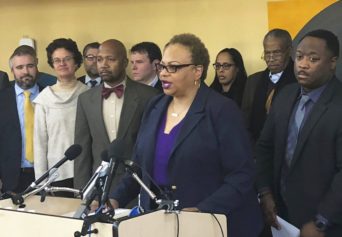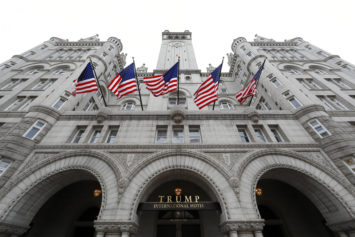A national debate over voting rights has come about in response to controversial state laws that impose an array of election restrictions, including photo ID requirements for voters.
States continue to fight many lawsuits that claim the measures would violate the Voting Rights Act by disproportionately harming minorities. The Justice Department has used the law in the past to reject many of the initiatives that include the voter ID laws in Texas and South Carolina.
Over the past two decades, attorney J. Gerald Hebert has handled more than 100 civil rights cases for the Justice Department enforcing the Voting Rights Act. Hebert now helps governments gain relief from the law’s central mandate.
Known as the “Bailout King,” Hebert uses a little known exemption from the 1965 statute to help those communities that have closed shameful chapters of their history. The mandate states that communities with a history of discrimination must get federal permission or “pre-clearance” for election changes, redistricting or annexations. Governments argue that they are being unfairly forced to comply with the mandate since discriminatory practices of the past have long been abolished. Cost as well as the inconvenience of submitting every proposal for election change to the Justice Department is seen as a hindrance to these areas.
“I’m helping jurisdictions that have a very solid, clean record of voting rights compliance; they have earned it,” Hebert said. “I have never represented and never will represent a jurisdiction seeking a bailout that’s not qualified. I didn’t devote my life to the Voting Rights Act and civil rights to help jurisdictions that discriminate against minority voters.”
The bailout would grant them relief if they provide evidence of an increased level of minority participation in addition to 10 consecutive years of elections free of discrimination. Bailouts have been increasingly more common ever since a 2009 Supreme Court ruling loosened the requirements. In the past three years about 36 counties, cities and utility districts, most of which are located in the south, have bailed out, creating the highest volume ever.
Though the number of bailouts has increased, there remains a fear of backlash for those areas that ask for exemption.
“Jurisdictions are also a little hesitant to ask for the exemption just because the political sound of that isn’t good,” said attorney Jason Torchinsky, who represented the city of Sandy Springs, the first jurisdiction in Georgia to bail out. “When you are a local official, the last thing you need is to vote for something that’s going to cause civil rights protests in you town.”
In April of this year, Prince William County, where minorities make up 52 percent of the population, became the largest jurisdiction in the nation to bail out.
“I’ve lived in Prince William for 20 years and I haven’t seen any evidence of discrimination,” said Keith Scarborough, chairman of the county’s elections board. “But I’ve gotten to know a lot of people for whom it’s not an academic issue. They and their parents lived through Jim Crow laws. I wanted to make sure it was far enough in the past.”
Election officials garnered support from civil rights activist Curtis Porter, who serves as chairman of the county’s human rights commission. Porter was initially skeptical about the bailout.
“To many, the vestiges of legalized segregation and discrimination are no more than a history lesson. For me, it was a reality,” Porter, 55, said.

